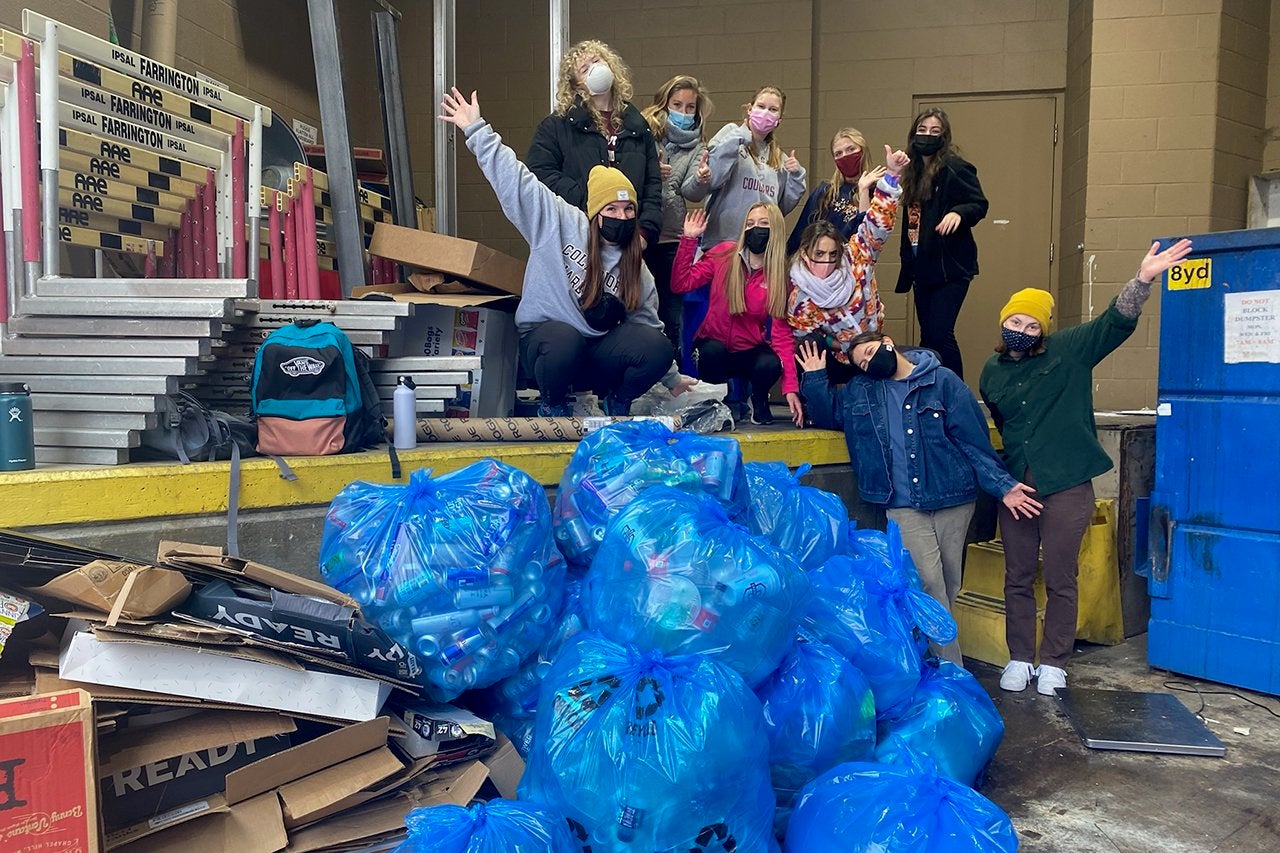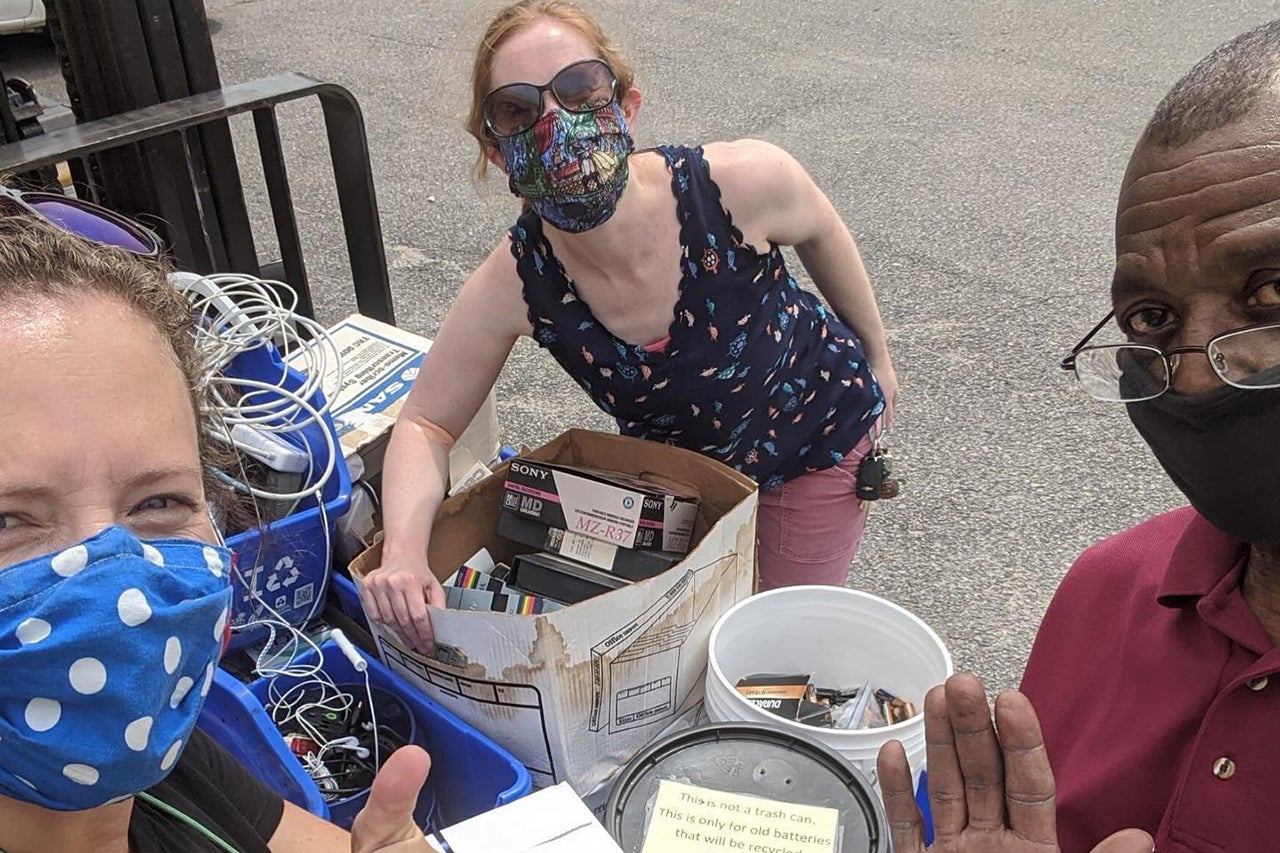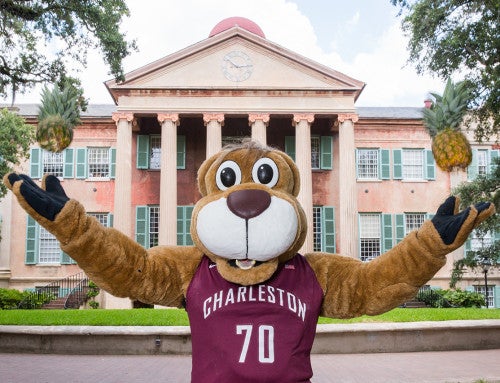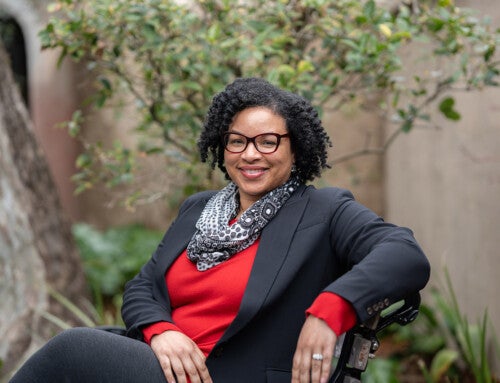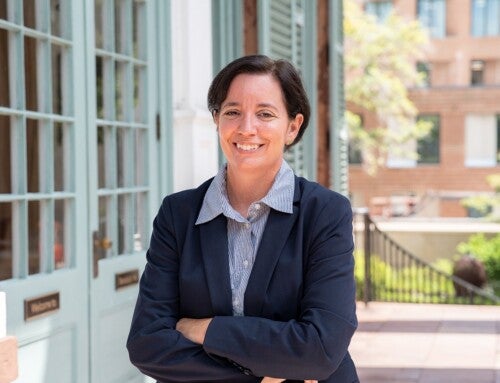There are plenty of ways faculty and staff can participate in Sustainability Week (April 18–22) this year. But, by definition, you can’t limit sustainability to just one week of the year. Fortunately, there are even more ways faculty and staff can sustain their efforts all year long.
“Sustainability Week has lots of opportunities for folks to get involved,” says Darcy Everett, the sustainability director at the Center for Sustainable Development (CSD), now located at 207 Calhoun Street.
A full description of Sustainability Week 2022 events may be found on the CSD website, including:
- Sustainable Cities Vision Walks: Going on all week long, these self-guided walks start on the second floor of Addlestone Library, where there is a QR code to access the full tour and get to the next stop. Six sites will be installed for you to learn more and see sustainability in action.
- Charleston Social Justice Sites Tours: On Tuesday, April 19, starting at 4 p.m., 4:30 p.m. and 5 p.m. at the CSD (207 Calhoun St.), these engaging tours feature cultural heritage sites on campus and the surrounding area that tell the complex history of the people and places that make up our community.
- Sustainable Cities Expo: From 10:30 a.m. to 2:30 p.m. on Wednesday, April 20, in the Cistern Yard, the Expo will feature a farmer’s market, CARTA ride-alongs and a Cougar Free Store pop-up. See a full list of activities at the Expo here. More information and links to register for the ride-alongs are available on the Sustainability Week website.
- An Earth Day Dialogue: Sustainability and Flourishing in the 21st Century: On April 21, 6–7:30 p.m., a panel discussion will be held in the School of Sciences and Mathematics Building auditorium and on Zoom. Four sustainability practitioners and entrepreneurs who are leading voices in climate justice work locally and internationally will discuss their experiences starting sustainable businesses, organizing and strategizing for community empowerment, navigating structural racism and colonialism and how to stay inspired in the struggles for building a socially, economically and environmentally flourishing world.

In 2021, the College sent approximately 1.1 million pounds of trash to the landfill and diverted about 37% of its waste from the landfill.
“Throughout the whole week, we will also be tabling, have a Sustainability Bingo a Sustainability Field Day,” says Everett, adding that – in order for the CSD to reach its goal of achieving Zero Waste by 2035 – it needs the support of every department, every office and every individual employee not just during one week in April, but throughout the year. “We welcome everyone’s participation in these efforts, as it will truly take the entire campus community to help us reach our goal of zero waste.”
Zero waste is one of the goals of the College’s Sustainability Action Plan (SAP), which was approved last year with the mission of reducing the College’s ecological footprint, providing innovative sustainability education and being a catalyst for sustainability awareness and engagement for the College and surrounding community. Its other goals are carbon neutrality, holistic integrated learning (which includes providing faculty and staff with professional development and research opportunities in support of sustainable literacy on campus) and an active sustainability culture that fosters equality and social justice, diversity and inclusiveness through sustainability initiatives within the community.

The CSD received a $30,000 grant from Siemens EMPOWER to conduct a waste characterization study on the trash on campus to identify what could be recycled, recovered or redesigned out of the waste stream. The results will be used as a baseline for the Zero Waste Initiative moving forward.
One way faculty and staff can support the SAP’s mission is through the Green Office Certification Program, which provides the resources to integrate social inclusion and environment consciousness within working spaces.
Based on six areas of evaluation – waste, energy, water, human health and environmental quality, involvement and accessibility – the program assesses College of Charleston offices using an office checklist of action items, a self-assessment survey taken by participants in the office and a waste audit that looks at the office’s use of and policies regarding, among other things, the following:
- dish ware and food – Are zero-waste events requested when available? Have orders for plastic water bottles and Styrofoam cups stopped?
- paper and office supplies – Is double-sided printing set as default on computers? Is it policy to check Central Stores before purchasing new furniture/equipment?
- recycling – Are recycling bins available and clearly labeled? Are specialty recycling bins available in a common area?
Offices can achieve a bronze, silver or gold ranking and have the opportunity to improve their Green Office status. Offices that have already become Green Offices include the Halsey Institute of Contemporary Art (gold), Facilities Management (bronze), the REACH Program (silver), the Department of Hispanic Studies (bronze), the Office of the Registrar (gold) and the Transfer Resource Center (gold). Regardless of the level of certification, by joining the Green Office Certification Program, offices build productive workspaces and mindsets and work toward conserving energy, resources and money.
Of course, Green Offices require the commitment from all of their employees – so each and every individual must do their part. But, even if the rest of your office isn’t ready to jump on board, there are ways you can support the Zero Waste Initiative and other sustainability efforts every day of the year:
- Turn off lights, computers, printers, copiers and other appliances that are not in use.
- Unplug small appliances and chargers that are not in use.
- Keep the lights off when natural lighting is sufficient.
- Activate the hibernation settings on your computer.
- Cycle, walk or carpool to work. Better yet, ride CARTA buses – they’re free with your CofC ID!
- Bring your own coffee mug and water bottle.
- Print on both sides of the page, and always purchase recycled paper.
- If the temperature in your work area isn’t comfortable, check with Facilities Management to adjust it before ordering and using a personal heater or fan.
- If you purchase office appliances, choose Energy Star products.
- If you purchase office furnishings, opt for sustainable products.
- Follow the Zero Waste Event Guide when planning events.
- And, of course, recycle paper, plastic bottles, aluminum cans and glass bottles.

CSD graduate assistant Nicole Killen, who is in the College’s EVSS/MPA concurrent masters program, conducted two large waste audits of the trash at TD Arena as part of her thesis project. The CSD received a $10,000 SCDHEC grant to add new waste/recycling bins throughout the arena this summer.
“Please don’t be a wishful recycler,” Everett requests, adding that – when in doubt – employees may refer to this recycling guide specifying what you can recycle on campus. “Don’t throw an item in the bin because you hope it can be recycled. If you’re unsure whether something is recyclable, it’s best to just to discard it in a waste bin so that it goes to the landfill.”
It’s also important to know what recyclables go where.
“Co-mingling plastic and paper can cause real problems for the recovery facilities where we send our materials,” says Everett. “This is the reason we have two separate bins in most locations on campus.”
There are also specialty recycling bins for things like razors, printer cartridges, small electronics and batteries, which can now be accepted at the CSD’s Zero Waste HQ, now located at 207 Calhoun Street. Use the CSD’s interactive recycling map to find other locations of specialty recycling bins, including:
- TerraCycle– Office supplies like mechanical pencils and pens/markers/highlighters and their caps, as well as personal care and beauty products and natural care products.
- Face Mask Recycling – Special bins were recently installed in the Robert Scott Small Building and the J.C. Long Building, thanks to a Cougar Changemakers project from last semester.
For more information about how to help sustainability efforts across campus, contact sustainability@cofc.edu or complete the Sustainability Interest Form.

